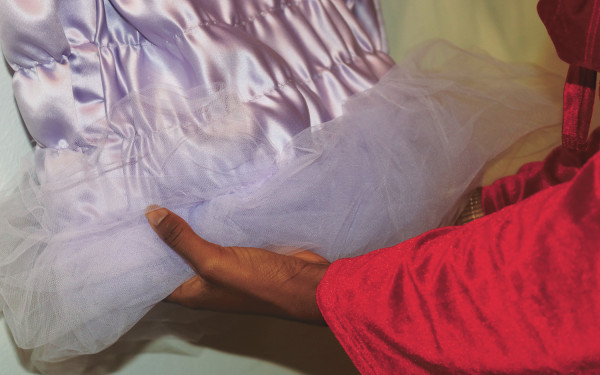Breasts Don’t Constitute Femininity
Panelists at Concordia Discuss Harmful Effects of Pinkwashing Breast Cancer
At 37, Julie Michaud was diagnosed with breast cancer.
She decided to undergo a mastectomy. After being offered the possibility of breast reconstruction, she declined the option. Her surgeon insisted he would not schedule the mastectomy until she agreed to talk to a plastic surgeon about the option.
She isn’t the only one to face this situation. Many women are talked into reconstruction, although it remains an optional surgery, unrelated to the cancer. It does not prevent some surgeons from pressuring their patients, whose bodies are already under internal assault, into undertaking a demanding procedure.
This situation comes from a society that can’t deal with a woman who does not have all the physical characteristics we associate with femininity, Michaud said in a panel discussion at Concordia University on Wednesday. Although she acknowledged reconstruction could help some individuals overcome the psychological trauma of the illness, she asserted the choice should be theirs and not about making their body more acceptable for others.
The panelists explored experiences of breast cancer across the spectrum of sexual and gender diversity, and discussed the social construction of the disease. Michaud is a coordinator at Concordia’s Centre for Gender Advocacy. The other panelists included Jennifer Beeman, director of
Breast Cancer Action Quebec, an organization that aims to focus on causes and prevention of the disease, and Luisa Molino, coordinator of the Canadian research project, Cancer’s Margins. They addressed the question “Where is feminism when my body needs it most?”
Cancer survivors present at the event reported feeling objectified through their recovery process, having to justify the way they coped with their new body considering society deemed it part of their sexuality. Similarly, another woman in the audience attested her need for reconstruction at
70 years old was questioned, after expressing her desire to have her breast rebuilt.
Molino focused on stories of cancer survivors who challenge heteronormativity. The Cancer Margin’s three-year project studies the way gender and sexuality interrelates with diseases. Participants interviewed were followed through screening, diagnosis, treatment and support. She said medicine needs new ways to engage with their LGBTQIA+ patients, who can feel marginalized.
Hence panelists asked for gender advocacy support groups in hospitals. They said it would help patients accepting their bodies, no matter if they choose reconstruction or to have their breasts removed. They regretted the absence of a feminist health movement in politics.
Beeman reminded the audience that in Quebec, women in wheelchairs are sometimes rejected because mammograms cannot be lowered to their heights. The issue has not been tackled. In 2012, Prime Minister Stephen Harper cut the Women’s Health Contribution Program, which supported community-academic partnership with about $3 million annually.
Since October is the Breast Cancer Awareness month, panelists denounced the pink ribbons movement, which focuses on saving breasts, rather than prioritizing women’s lives. Another member from the audience argued treatments offered in hospitals reproduce the patriarchal system that generated them. A feminist approach would help women who deal with eating disorders or gynecological illness understand and deconstruct the way they feel about their bodies, she said.
According to the participants, this campaign creates a sexy and shiny image of the problem, which conveys a certain idea of gender and prevents trans men or queer people from identifying with the cause. They discussed the idea that corporations use this marketing tool to sell products, which harm women, and trans people in the long run. Michaud said that the questions that should be addressed are why so many women get breast cancer, and why most companies branding breast cancer awareness massively use carcinogens.
“The cure is the prevention,” said Beeman.
Correction: A previous title stated “Breast Size” which didn’t accurately reflect what was discussed during the panel.

_900_513_90.jpg)
_600_832_s.png)

_600_375_90_s_c1.jpg)


